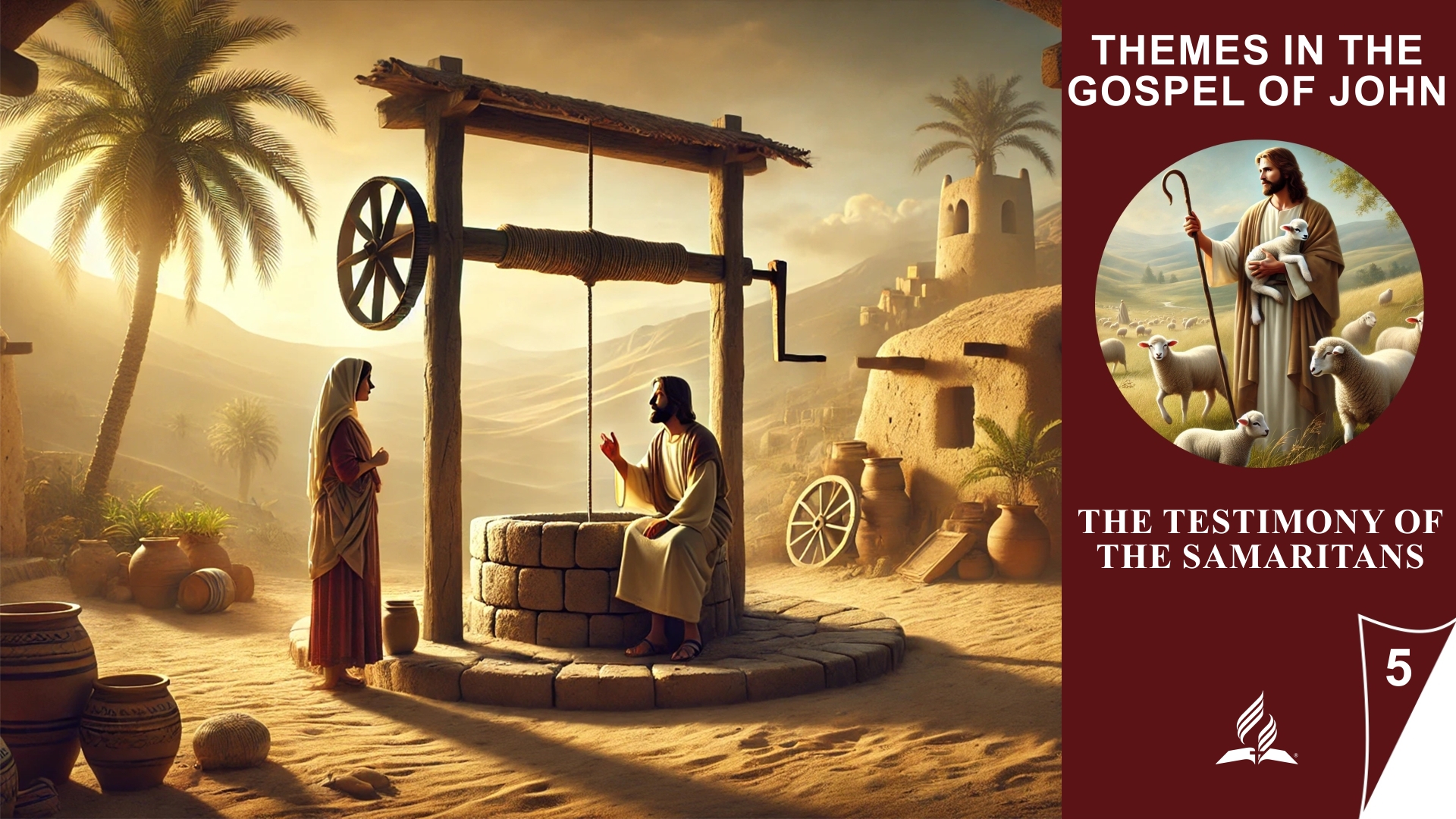October 29, 2024
DAILY BIBLE READING – Acts Chapter 2
1 And when the day of Pentecost was fully come, they were all with one accord in one place.
2 And suddenly there came a sound from heaven as of a rushing mighty wind, and it filled all the house where they were sitting.
3 And there appeared unto them cloven tongues like as of fire, and it sat upon each of them.
4 And they were all filled with the Holy Ghost, and began to speak with other tongues, as the Spirit gave them utterance.
5 And there were dwelling at Jerusalem Jews, devout men, out of every nation under heaven.
6 Now when this was noised abroad, the multitude came together, and were confounded, because that every man heard them speak in his own language.
7 And they were all amazed and marvelled, saying one to another, Behold, are not all these which speak Galilaeans?
8 And how hear we every man in our own tongue, wherein we were born?
9 Parthians, and Medes, and Elamites, and the dwellers in Mesopotamia, and in Judaea, and Cappadocia, in Pontus, and Asia,
10 Phrygia, and Pamphylia, in Egypt, and in the parts of Libya about Cyrene, and strangers of Rome, Jews and proselytes,
11 Cretes and Arabians, we do hear them speak in our tongues the wonderful works of God.
12 And they were all amazed, and were in doubt, saying one to another, What meaneth this?
13 Others mocking said, These men are full of new wine.
14 But Peter, standing up with the eleven, lifted up his voice, and said unto them, Ye men of Judaea, and all ye that dwell at Jerusalem, be this known unto you, and hearken to my words:
15 For these are not drunken, as ye suppose, seeing it is but the third hour of the day.
16 But this is that which was spoken by the prophet Joel;
17 And it shall come to pass in the last days, saith God, I will pour out of my Spirit upon all flesh: and your sons and your daughters shall prophesy, and your young men shall see visions, and your old men shall dream dreams:
18 And on my servants and on my handmaidens I will pour out in those days of my Spirit; and they shall prophesy:
19 And I will shew wonders in heaven above, and signs in the earth beneath; blood, and fire, and vapour of smoke:
20 The sun shall be turned into darkness, and the moon into blood, before the great and notable day of the Lord come:
21 And it shall come to pass, that whosoever shall call on the name of the Lord shall be saved.
22 Ye men of Israel, hear these words; Jesus of Nazareth, a man approved of God among you by miracles and wonders and signs, which God did by him in the midst of you, as ye yourselves also know:
23 Him, being delivered by the determinate counsel and foreknowledge of God, ye have taken, and by wicked hands have crucified and slain:
24 Whom God hath raised up, having loosed the pains of death: because it was not possible that he should be holden of it.
25 For David speaketh concerning him, I foresaw the Lord always before my face, for he is on my right hand, that I should not be moved:
26 Therefore did my heart rejoice, and my tongue was glad; moreover also my flesh shall rest in hope:
27 Because thou wilt not leave my soul in hell, neither wilt thou suffer thine Holy One to see corruption.
28 Thou hast made known to me the ways of life; thou shalt make me full of joy with thy countenance.
29 Men and brethren, let me freely speak unto you of the patriarch David, that he is both dead and buried, and his sepulchre is with us unto this day.
30 Therefore being a prophet, and knowing that God had sworn with an oath to him, that of the fruit of his loins, according to the flesh, he would raise up Christ to sit on his throne;
31 He seeing this before spake of the resurrection of Christ, that his soul was not left in hell, neither his flesh did see corruption.
32 This Jesus hath God raised up, whereof we all are witnesses.
33 Therefore being by the right hand of God exalted, and having received of the Father the promise of the Holy Ghost, he hath shed forth this, which ye now see and hear.
34 For David is not ascended into the heavens: but he saith himself, The Lord said unto my Lord, Sit thou on my right hand,
35 Until I make thy foes thy footstool.
36 Therefore let all the house of Israel know assuredly, that God hath made the same Jesus, whom ye have crucified, both Lord and Christ.
37 Now when they heard this, they were pricked in their heart, and said unto Peter and to the rest of the apostles, Men and brethren, what shall we do?
38 Then Peter said unto them, Repent, and be baptized every one of you in the name of Jesus Christ for the remission of sins, and ye shall receive the gift of the Holy Ghost.
39 For the promise is unto you, and to your children, and to all that are afar off, even as many as the Lord our God shall call.
40 And with many other words did he testify and exhort, saying, Save yourselves from this untoward generation.
41 Then they that gladly received his word were baptized: and the same day there were added unto them about three thousand souls.
42 And they continued stedfastly in the apostles’ doctrine and fellowship, and in breaking of bread, and in prayers.
43 And fear came upon every soul: and many wonders and signs were done by the apostles.
44 And all that believed were together, and had all things common;
45 And sold their possessions and goods, and parted them to all men, as every man had need.
46 And they, continuing daily with one accord in the temple, and breaking bread from house to house, did eat their meat with gladness and singleness of heart,
47 Praising God, and having favour with all the people. And the Lord added to the church daily such as should be saved.
King James Version. Public Domain
Commentary
Introduction:
The second chapter of the Acts of the Apostles narrates one of the most significant events in early Christianity: the miracle of Pentecost. Pentecost becomes the birth of the Christian community when the Holy Spirit descends upon the gathered disciples, empowering them to proclaim the Gospel in various languages. This event is so astounding that a large crowd from different nations gathers to witness the power of the Spirit. Peter boldly steps forward as the speaker and explains to the assembled people the significance of Jesus’ life, death, and resurrection. This sermon and the powerful outpouring of the Spirit mark the beginning of a completely new community of believers – the first Christian church. The events in this chapter show that God’s Spirit is alive and active in the world, uniting all people who turn to Him in faith.
Commentary:
The Pentecost event in Acts 2 is significant and foundational for understanding the Christian community and the work of the Holy Spirit in multiple ways. The apostles and disciples had gathered in Jerusalem, and when the Spirit descended, He not only filled them personally but collectively empowered them to proclaim the Gospel. This demonstrates that the Spirit strengthens not only individual relationships with God but also binds the community of believers together and equips them to spread the message.
The sound of the wind and the tongues of fire that rest on the gathered people are powerful symbols of God’s presence and power. In the Old Testament, fire often symbolizes God’s holiness and purifying power, while the wind represents God’s life-giving breath. The fact that all present are empowered by the Spirit to speak in various languages shows that God’s message transcends all cultural and linguistic barriers. This “speaking in tongues” does not serve to confuse but to reveal, allowing the listeners to hear “the mighty works of God” in their own languages. This serves as a symbolic reversal of the Tower of Babel’s language confusion and reveals that God’s Spirit brings unity within diversity.
Peter steps forward with the eleven other apostles and preaches with new, Spirit-filled conviction. His words are not only explanatory but also prophetic. He quotes the prophet Joel to show that the Spirit’s work fulfills God’s promise. This prophetic outpouring of the Spirit includes all believers, regardless of age, gender, or social status. This is a revolutionary idea that establishes the church as an inclusive community of all believers.
Peter directly calls the audience to account for Jesus’ fate. He addresses the crucifixion and resurrection of Jesus, explaining that God has made this Jesus both “Lord and Christ.” This clear proclamation of Jesus’ resurrection and authority deeply moves the listeners. They ask, “What shall we do?” Peter responds by calling them to repentance and baptism in the name of Jesus Christ. Here, baptism becomes a sign of entering into the community of believers and a prerequisite for receiving the Spirit.
The second part of this chapter describes the formation and structure of the first Christian community. This community is characterized by shared life, teaching, breaking of bread, and prayer. The believers share their possessions, help one another, and spend much time together. The generosity and unity of this first community strongly contrast with the surrounding society’s self-centeredness and social isolation. A picture of community emerges, shaped by God’s Spirit, which serves as a model for Christian communities today.
The Pentecost event in Acts 2 is portrayed not merely as a one-time historical event but as the beginning of the Spirit’s ongoing work. The Spirit’s power manifests not only in miracles and signs but especially in the unity and dedication of the community. Pentecost marks a turning point when the Gospel goes out to all people, a dynamic community of faith emerges, and God’s Spirit continually works to strengthen faith and create community. The daily addition of believers to the community shows that the Spirit works in people’s hearts, drawing them to repentance and faith in Christ.
Summary:
Acts Chapter 2 describes the descent of the Holy Spirit on Pentecost and its transformative impact on the disciples and the listeners. The Spirit fills the apostles and enables them to speak in various languages so that people from different nations can hear the message. Peter delivers a powerful sermon, calling the people to repentance and baptism, which leads to the formation of the first Christian community. This community lives in unity, shares their possessions, and remains steadfast in the apostles’ teaching, breaking of bread, and prayer. The Pentecost event marks the beginning of a new era of faith, where God’s Spirit unites people across all cultural boundaries and calls them to live as witnesses of the Gospel.
![]()

WEEKLY SPIRIT OF PROPHECY READING – Ellen White | The Desire of Ages
Chapter 73—“Let Not Your Heart Be Troubled”
This chapter is based on John 13:31-38; John 14; John 15; John 16; John 17.
Read online here
Commentary
Introduction:
Chapter 73 depicts the deep, moving words that Jesus gave to His disciples before His arrest and death. These sections of Scripture are particularly significant because Jesus prepares His disciples for the impending separation and encourages them not to despair despite the forthcoming difficulties. He emphasizes the necessity of faith in Him and in God and speaks about the importance of the Holy Spirit as a Comforter. The connection between the disciples and Jesus is highlighted as a vital component of the Christian faith, which remains relevant even today.
Commentary:
This chapter especially reveals the intimate relationship between Jesus and His disciples. Despite the sadness over His impending absence, Jesus strives to comfort them and provide them with a perspective of hope. He reveals the central significance of His sacrifice and emphasizes that His departure is not the end but the beginning of a new phase of their mission. The promise of the Holy Spirit shows that they will never be alone, even though He will no longer be physically with them. It is also interesting that Jesus highlights the importance of love and obedience. Love for God and for one another is emphasized as a sign of discipleship. This inner connection between love, faith, and obedience is a key to understanding and living out Christian discipleship.
Summary:
Chapter 73 describes the final moments that Jesus spent with His disciples before His arrest. He promises them that they will not remain alone but will receive the Holy Spirit as a Comforter. Jesus’ words emphasize the necessity of remaining in Him and obtaining eternal life through Him. Through the Holy Spirit, the disciples are empowered to continue Jesus’ work, accomplish greater things, and live in unity with one another. The chapter highlights the importance of faith, love, and obedience, which are necessary to remain connected to Christ. The message is timeless: even in difficult times, believers should trust in the Holy Spirit and be guided by the love and word of Christ.
Source: https://fulfilleddesire.net/29-10-2024-acts-chapter-2-believe-his-prophets/











